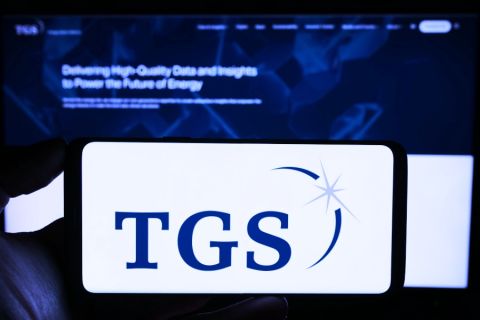Tom Price, here it is. The senior vice president, investor and government relations, at Chesapeake Energy Corp. has (pleasantly) noted on several occasions that it may be time to update a May 2000 A&D Watch newsletter article on the company. The story was titled "Why CHK Can't Get Up." In early 2000, the company's stock price had fallen to about $2 after its Austin Chalk gas holdings proved to be very short-lived. The stock had been more than $30 in 1997. Chesapeake's was the right story-U.S. natural gas-but a bit too early and not founded upon one of America's most enduring plays. Today, shares are more than $30 again-15 times that of six years ago. The company's market cap is $12.2 billion and its enterprise value is $15.7 billion, according to Morgan Stanley. Much has been up at Chesapeake since early 2000-proved reserves, stock price, Wall Street favor-and the length of the company's press releases! The latest one had a 90-word headline. The body was 4,650 words, including seven tables. PR Newswire should love the account, since it charges by the word. The press and analysts certainly enjoy the highly detailed reports. What's Chesapeake's 2007 estimated book tax rate? Its open swap positions as a percent of estimated total 2008 gas production? It's all there. What isn't plainly in there could be Chesapeake's most important story ever-how it ranks these days among U.S. gas reserve-holders. With recent acquisitions, its pro forma September 30, 2005, proved reserves totaled 7.6 trillion cubic feet equivalent (91% gas), ranking it among the Top 10 U.S. reserve-holders, based on John S. Herold Inc.'s figures for year-end 2004 U.S. holdings. In terms of natural gas holdings, the company is likely to rank No. 4 once all reserve-holders' year-end figures are released, and another big gainer, XTO Energy Inc., may be right in there too. Chesapeake and XTO could be just behind the likes of BP, ExxonMobil and ConocoPhillips-Burlington, and possibly ahead of Anadarko Petroleum and Devon Energy in U.S. gas-holdings. How did Chesapeake get there? Some would say it has bought its way to the top. While buying has been a large part of the Chesapeake story, the company regularly notes that it has grown its reserves by the drillbit too. In 2004, for example, it bought 190 million barrels of oil equivalent, and it found 160 million, according to Herold. Companies that Chesapeake has catapulted ahead of in U.S. gas reserves include Royal Dutch Shell, Chevron (including Unocal), The Williams Cos., Kerr-McGee Corp., EnCana Corp. and Dominion Resources. For more on this, see the February issue of Oil and Gas Investor. For a subscription, call 713-993-9325, ext. 129.
Recommended Reading
OTC: E&Ps Improving Operational Safety with Digitization
2024-05-13 - Artificial intelligence and the digitization of the oilfield have allowed for several improvements in keeping operators out of harm’s way, panelists said during the 2024 Offshore Technology Conference.
Exclusive: Cost-effective Benefits of Extracting from Mature Assets
2024-05-13 - Baker Hughes' well abandonment leader Bart Joppe details the importance of extracting resources from mature assets and the company's approach to managing a well, in this Hart Energy Exclusive interview.
TGS Starts Up Multiclient Wind, Metaocean North Sea Campaign
2024-05-07 - TGS is utilizing two laser imaging and ranging buoys to receive detailed wind measurements and metaocean data, with the goal of supporting decision-making in wind lease rounds in the German Bright.
Spate of New Contracts Boosts TechnipFMC's Subsea Profits
2024-04-30 - TechnipFMC's operational profits are growing as the company heightened its focus on “quality” subsea orders, which earned $2.4 billion for the first quarter.
Message in a Bottle: Tracing Production from Zone to Wellhead
2024-04-30 - New tracers by RESMAN Energy Technology enable measurement while a well is still producing.





